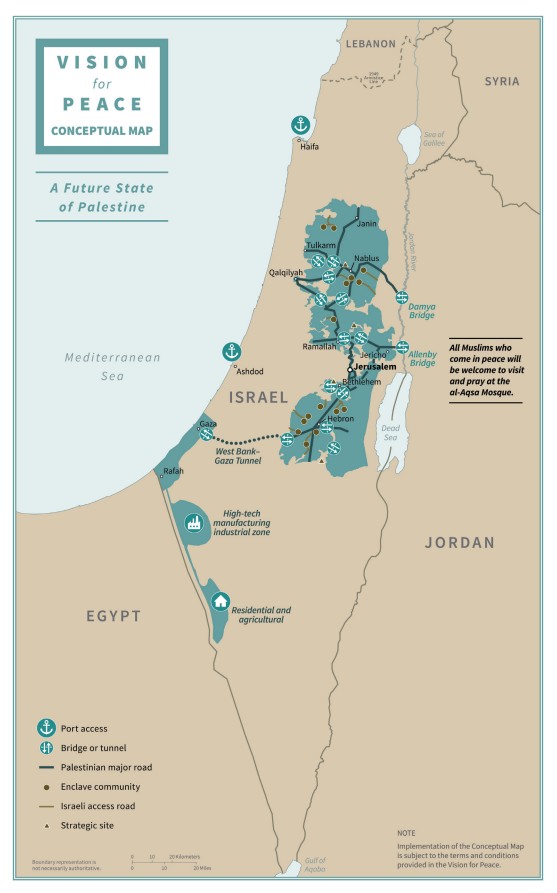
By Elise Hawthorne
I genuinely believe that anyone who loves Israel wants it to be a country at peace with its neighbours. I sat down with Middle Eastern scholar Oren Thaler to discuss President Trump’s Israel-Palestine peace plan, the so-called ‘Deal of the Century,’ to try and get to the heart of this hot topic.
Oren and I were keen to kick off our discussion on a positive note, acknowledging that whatever one thinks of Trump’s plan, it could be recognised as an important initiative simply because it puts the word peace back on the agenda. We both agreed that in an at-times unstable Middle East environment, bringing stability to Israel and surrounding areas is key to achieving lasting peace in this region. Oren stresses that having a stable society allows normality to exist, which can only improve the quality of life of its citizens. He goes on to point out that Trump’s peace plan could be viewed as the least bad option, for some people, or be written off altogether by others.

Oren went on to say the plan could be interpreted as a ‘generous surrender agreement’ like the 1948 Marshall Plan; that aimed to rebuild war-torn Europe by pumping large amounts of money into that region. In comparison, and with hindsight, the Treaty of Versailles, post WW1, could be seen to have been too harsh, leading to an unstable German economy, and we all know how that turned out. A thriving Palestinian state (or even a partial state) could prove to be an essential piece of a peace jigsaw puzzle. Oren states that for the first time in history, the Israeli political centre has formed a consensus regarding how to respond to the plan. The two major political parties have both expressed their support for Trump’s proposal in principle, creating a positive new dynamic in that regard.
The Palestinian leadership have so far rejected the plan, which currently brings a peace treaty to a stalemate situation as a counteroffer from the Palestinian government is more than likely not on the cards. Oren believes that history shows the Palestinians could respond to Trump’s plan in three possible ways. Firstly, violence – another Intifada. Secondly, reject the proposal passively or thirdly, a kind of silent acceptance of the deal, not saying out loud they accept it but maintaining a cooperative working relationship with Israel to help build a safe and secure society for both all. The third option could be deemed as the best (or least bad), and the most realistic scenario moving forward.
There are still many questions to be asked, most importantly, does most of the Israeli and Palestinian peoples genuinely want peace and if so, are they and their political leaders open to compromise (and if so, how much) to achieve it? With time marching on, can the Israeli, Palestinian and various external mediators keep having talkfests decade after decade without a peace plan in place? Or is it time to draw a line in this particular Middle Eastern sand and finally agree on land, security and right of return issues, even if each side doesn’t get exactly what they want? Who determines when the time is right, certainly not I. Jerusalem, loved by all three Abrahamic religions means, ‘city of peace’ so why not let Jerusalem live up to its name and be an inspiration to all involved when trying to secure lasting peace – it is definitely food for thought.
| Oren Thaler (photo above) is a graduate of Middle East Studies at Hebrew University. He came to Australia in 2016 after working for 15 years in Jerusalem as a teacher and leader of grassroots peace and reconciliation initiatives between Arabs and Jews. Oren now teaches at Emanuel School while completing his MA in Peace and Conflict Studies at the University of Sydney, focusing on the Arab-Israeli conflict. |






Get Social